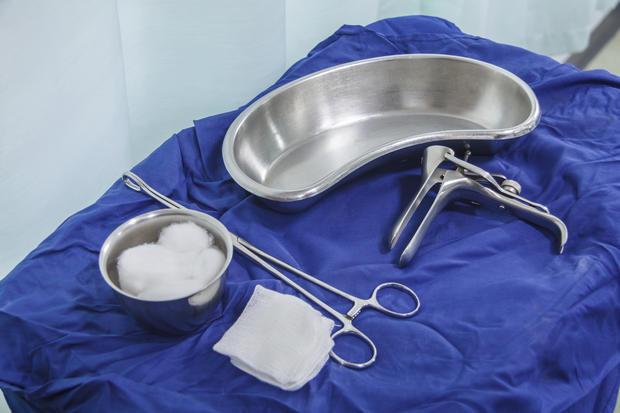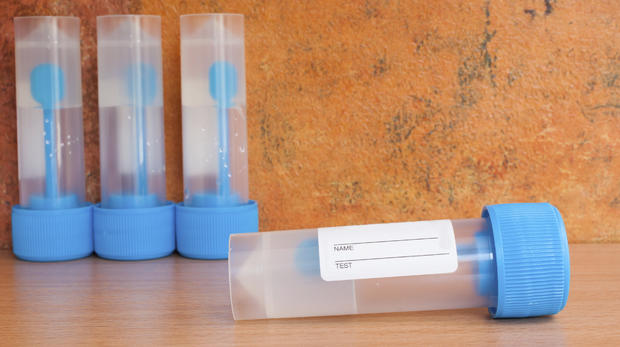Smarter screening for 5 common cancers
Nearly 600,000 people in the U.S. will die of cancer this year, according to the American Cancer Society. One way to reduce cancer-related deaths is by implementing better cancer screening for early detection. Yet controversy and confusion remains over exactly who should be screened for different cancers, at what ages, and how often.
The American College of Physicians (ACP) released a report published in May 2015 in the Annals of Internal Medicine offering advice to physicians on when average-risk patients should be screened for five common cancers: breast, cervical, colorectal, ovarian, and prostate.
"ACP wants smarter screening by informing people about the benefits and harms of screening and encouraging them to get screened at the right time, at the right interval, with the right test," Dr. Wayne J. Riley, president of ACP, said in a statement. "Many people have a lack of understanding about the trade-offs of screening. Study after study has consistently shown that patients and many physicians overestimate the benefits and are unaware of and/or downplay the potential harms of cancer screening."
The group reviewed clinical guidelines issued by several organizations, including the U.S. Preventive Services Task Force, the American Academy of Family Physicians, and the American Cancer Society, among others, with the goal of developing comprehensive advice on how to maximize the benefits of cancer screening while reducing unnecessary testing.
Click through to see the ACP's latest advice on cancer screening...
Breast cancer
The study authors recommend that doctors begin discussing the benefits and harms of breast cancer screening for women at age 40, and order a mammogram every two years if a woman requests it. By age 50, doctors should encourage their female patients to have a mammogram every two years until the age of 75.
Experts say beginning screening in average-risk patients younger than 40 who are not showing any symptoms would lead to an increased number of false positives and invasive testing, causing patients physical harm as well as unneeded worry and expense.
"The median age for incidence of breast cancer is mid-60's," Dale Shepard, MD, PhD, an oncologist at the Cleveland Clinic, told CBS News. "The likelihood that you're going to pick up a breast cancer incidentally on a screening test in younger women is exceedingly small. On a screening test, if you see an abnormality it's far more likely to come back as a benign growth, but not without causing a tremendous amount of stress to the patient."
Additionally, the study advises against routine screening with MRIs. "They're really uncomfortable, they're really expensive, and they're far more likely to pick up subtle abnormalities that would lead to false positives," Shepard said. Regular systematic breast self-exams are also not recommended for lack of effectiveness.
Women with a family history of breast cancer or others at higher risk may need more frequent mammograms starting at a younger age.
Cervical cancer
Screening for cervical cancer with a pap smear is recommended every three years for women aged 21 to 29. From age 30 to 65, women should be offered the choice of either continuing pap smears every three years or getting both a pap smear plus human papillomavirus (HPV) test once every five years.
Testing for HPV in women younger than 30 was determined not to be beneficial to the patient. "If you look at the biology of cervical cancer, most women who have HPV-associated cervical cancers, those appear later in life," Shepard said. "Not looking for HPV in younger people, it's not likely that that's going to be causing cervical cancer."
According to the report, reducing the frequency of screening from every year to every three years will minimize harms, including increased psychological and physical complications from follow-up procedures after false-positive screening test results, overdiagnosis, overtreatment, and higher costs.
Shepard also said he hopes patients will be more likely to get screened if they're required to do so less frequently.
Colorectal cancer
From age 50 to 75, there are four ways average-risk patients can be screened for colorectal cancer. The options include certain yearly stool tests, sigmoidoscopy every five years, a combination of the two, or a colonoscopy every 10 years.
All of these tests are effective, Shepard said, if administered properly. "Whenever anyone asks me which is the best test to get, I tell them whichever one the patient will take," he said.
Last year, the U.S. Food and Drug Administration approved a new at-home DNA stool test called Cologuard, which may offer another option, but the American College of Physicians says more data is needed before it can be recommended.
Ovarian cancer
ACP does not recommend screening average-risk women without any symptoms for ovarian cancer. Pelvic examinations, blood tests, and transvaginal ultrasonography have been found to be ineffective at detecting ovarian cancer.
Such screenings, the report states, would lead to no benefits and would only increase harms and costs, including complications and invasive work-ups.
Prostate cancer
Average-risk men aged 50 to 69 should discuss the benefits and harms of screening for prostate cancer with their doctors at least once.
In many men, prostate cancer grows so slowly that it would never turn into anything harmful. "Currently, about 25 cases of prostate cancer are diagnosed and treated in order for one person to live longer," Shepard said. Treatment side effects, including urinary incontinence, sexual dysfunction, and loss of fertility should also be taken into account.
If a patient decides to be screened, knowing the pros and cons, a PSA blood test should be ordered no more than every two to four years.
Testing is not recommended for men older than 69 and men not in good health with a life expectancy of less than 10 years. "If people are very old and have many other health conditions, finding that cancer is going to subject them to more medical issues in life, but it's not going to make them live any longer and probably not going to make them live any more comfortably," Shepard said.
READ: Woman posts skin cancer selfie to warn about hazards of tanning





